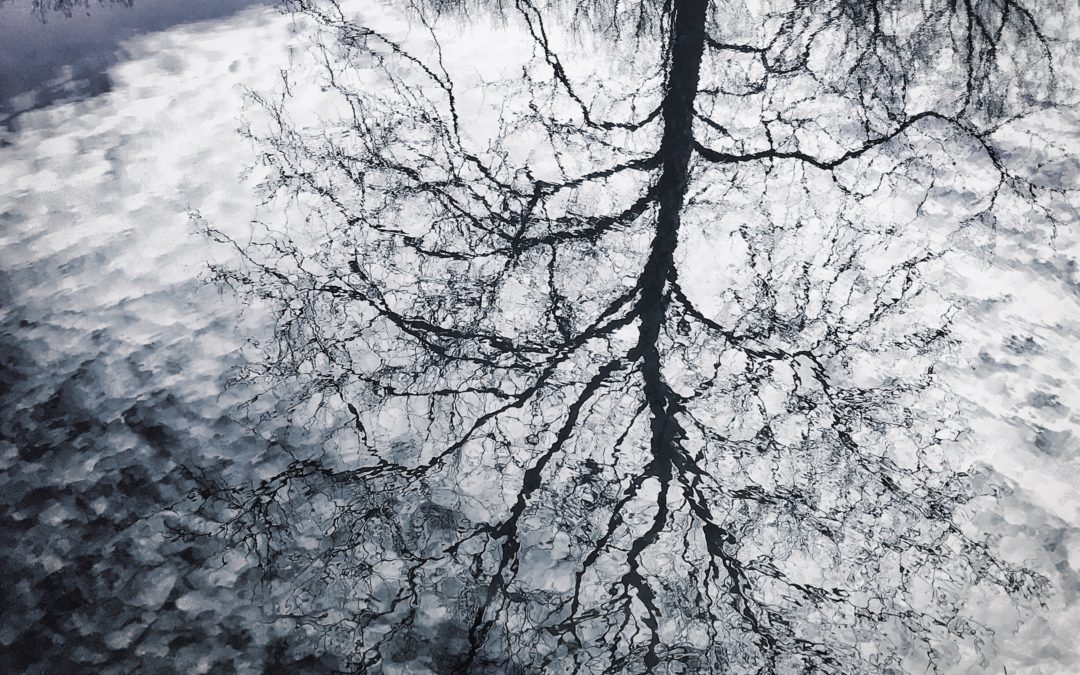He stands at the edge of the lake and stares at the tree’s reflection, thinking of metaphors—the winter, the cold, the barren, the denuded. Each comparison a freshly frosted mug of melancholy, which suits Jacob Illich well. You do not come from where he did and emerge without an intimate relationship with this lugubrious state of mind.
At home, he and his friends would toast to the sour fruits of life. The barren trees. The unholy. The broken. The diseased. Giving breath, when all around them was death. But not here—not in America. Here lives a corn-fed crowd of overly enthusiastic church goers who are never toppled by the sneaker waves of contemplation. These are not a brooding people. Give them a flag and a pledge and off they go chanting and waving. For or against, up or down, it does not matter. In this land, it is simply the act that matters. And in so acting they tell themselves they are free, and then never struggle with what that freedom might cost.
At first Jacob Illich admired the Americans their casualness and considered it a sweet nativity. Then he became bored—then resentful. Who were these people who stood not knowing whose backs they were propped upon?
He stares at the tree’s reflection, thinking of metaphors—the ephemeral, the fleeting, the momentary, the lost. Each comparison a freshly frosted mug of melancholy, which suits Jacob Illich well. You do not come from where he had, seen what he had seen, learned what he had learned and not emerge without an intimate relationship with this lugubrious state of mind. It is a balm, a felted blanket, a nocturne played softly in the dead of a winter’s night. It is home, Jacob says, bowing his head and walking away.
(Note: everyday I try to take one black and white photograph. Sometimes a story comes with them. When they do, I will post them here.)
